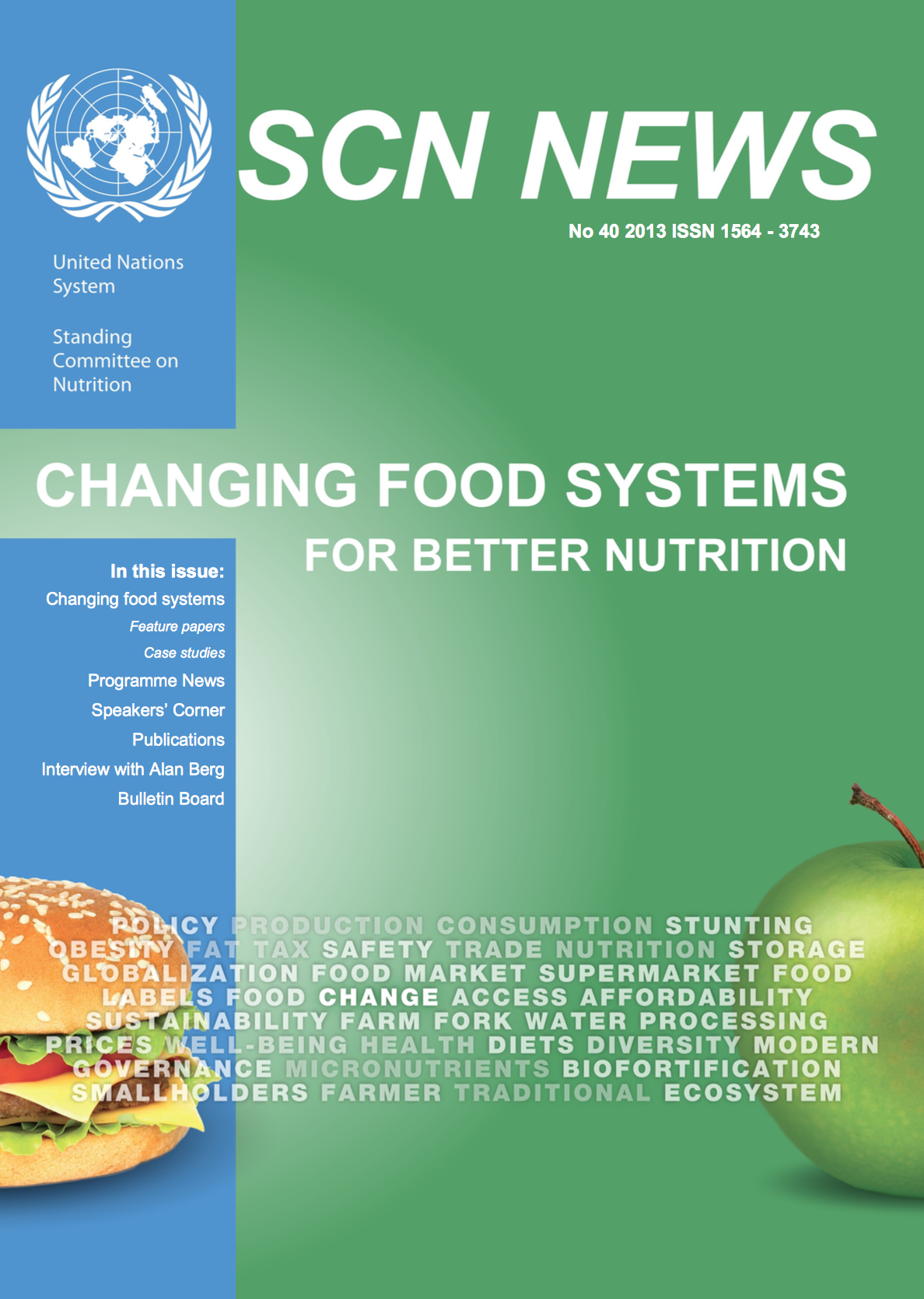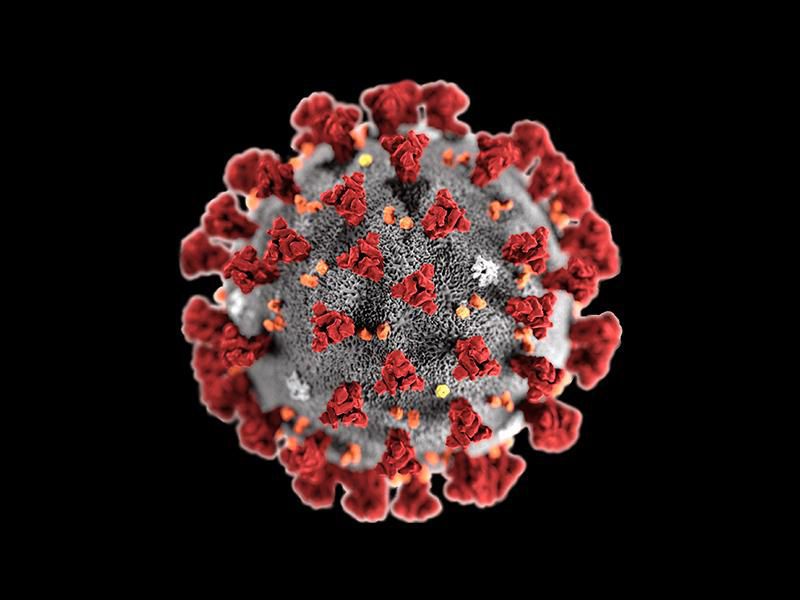UNSCN Nutrition
UNSCN Nutrition is a periodic review of developments in international nutrition compiled by UNSCN from a variety of sources of information. UNSCN Nutrition aims to serve as a communication channel for the international nutrition community of practice, highlighting recent developments in policy and programme. The UNSCN Nutrition has published peer reviewed papers on relevant nutritional issues including updates on UNSCN members’ activities twice a year since 1988. Many developing country researchers and programme managers have found the UNSCN Nutrition very useful, as they often do not have easy access to other journals. The focus on policy and programme implications makes the UNSCN Nutrition unique compared to other research oriented nutrition publications.
To access earlier UNSCN Nutrition, visit the archive section.
The 2020 issue of UNSCN Nutrition will focus on Nutrition and the Digital World. Find out more.
SCN News 40: Changing Food Systems for Better Nutrition

Food systems are well placed to influence food production and the consumption patterns of nutritious foods necessary for a healthy and active live. The present food systems have evolved to become more complex and global with longer supply chains from farm to fork. Agriculture affects or could affect nutrition outcomes through different pathways and thus in varying degrees. Nutrition-sensitive agriculture aims to maximize the impact of the food and agricultural sector on nutrition outcomes while minimizing any unintended negative nutritional consequences of agricultural policies and interventions on the value chain that influence from farmers to consumers. It is placing a nutrition lens on the food and agricultural sector, without detracting from the sector’s own goals which include production, productivity and income.
Applying a nutrition lens to agriculture and food systems should include a consistent focus on nutritional outcomes and indicators within national food and agricultural policies and programmes, and the broader macroeconomic policies and development strategies. The aim should be to sustainably improve food and nutrition security and combat the multiple burden of malnutrition through food and agriculture, and other relevant sectors. Although there is wide agreement on the great potential for agriculture and the food system to improve nutrition, at present there are limited experiences with this approach at scale and insufficient existence of rigorously supported evidence-based technical recommendations to inform policy makers. There is also little documented evidence on the factors and policy processes that contribute to better coordination with the agricultural sector, and those that prevent it from happening in practice.
Therefore, there is a need to better understand how food systems impact nutrition outcomes and agricultural systems in particular. There is need to identify whether and how these systems can be modified to better meet nutrition goals in a sustainable way and reduce the risk of the multiple burden of malnutrition, including diet-related non communicable diseases, while still reaching their important goals of productivity and income generation.
The SCN News#40 contributed to provide an answer to the following questions:
- What is needed to promote change in the food systems to achieve more nutrition-sensitive policies and programmes?
- How to make agricultural policies and programmes more nutrition-sensitive?
- What is the potential economic impact of nutrition-sensitive food systems?
- What are the ongoing country initiatives to making agriculture nutrition-sensitive and how is it done? What are the challenges faced? What are the key lessons learned and achievements so far?
- What are the gaps that need to be addressed to promote more nutrition-sensitive food systems? What is needed at country level to move this agenda forward?
- What kind of institutional arrangements and policy environments are supportive of nutrition-sensitive food systems? What are their key features?
- How to monitor and evaluate nutrition-sensitive interventions with a food systems approach?
To download low-definition pdf version - click here (4 Mb)
To download high-definintion pdf version - click here (8 Mb)





